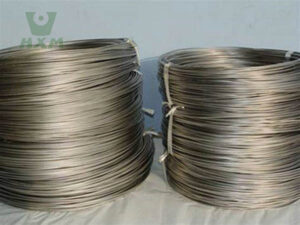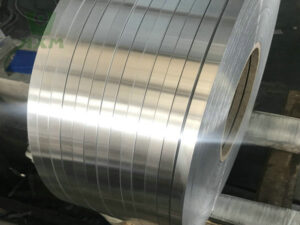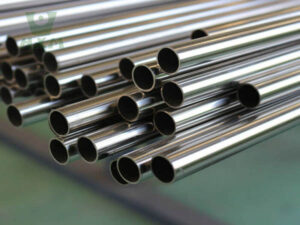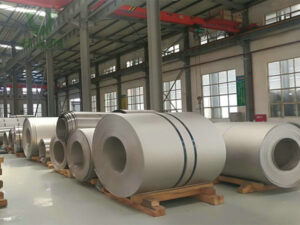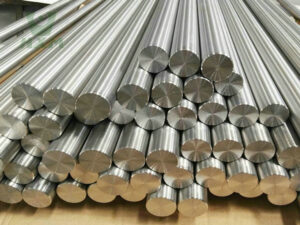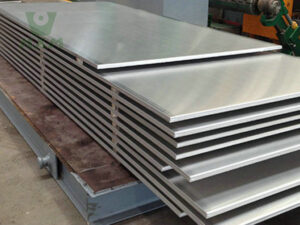Titanium alloys are critical materials in the aerospace industry due to their exceptional strength-to-weight ratio, corrosion resistance, and ability to withstand extreme temperatures. About 60% of titanium alloys are used in aerospace in Europe and the United States Among these alloys, Ti-6Al-4V (Grade 5 titanium) is the most widely used in aerospace applications. Below is a detailed analysis of the alloy, including its chemical composition, physical and mechanical properties, advantages, applications, and cost considerations.This alloy is renowned for its excellent strength-to-weight ratio, corrosion resistance, and biocompatibility. Huaxiao Metal Supplier has the various titanium alloy and an alloy the quality is good in China.
Overview of Titanium Alloy
Titanium alloys are primarily composed of titanium, with other metallic or non-metallic elements added to enhance specific properties. Common alloying elements include aluminum, vanadium, molybdenum, tin, nickel, manganese, zirconium, tantalum, and niobium. The exact percentage of titanium in the alloy can vary significantly depending on the specific alloy type and its intended application. For instance, in gamma-TiAl alloys, titanium typically comprises around 52% of the composition, with aluminum making up the remaining 48%. However, in aerospace applications, the titanium content and other alloying elements are precisely controlled to meet stringent performance requirements.
Analyzing the titanium content and characteristics of titanium alloys used in aerospace requires a detailed examination from multiple perspectives, including chemical composition, physical properties, mechanical properties, advantages, applications, and production costs. Below is a comprehensive analysis:
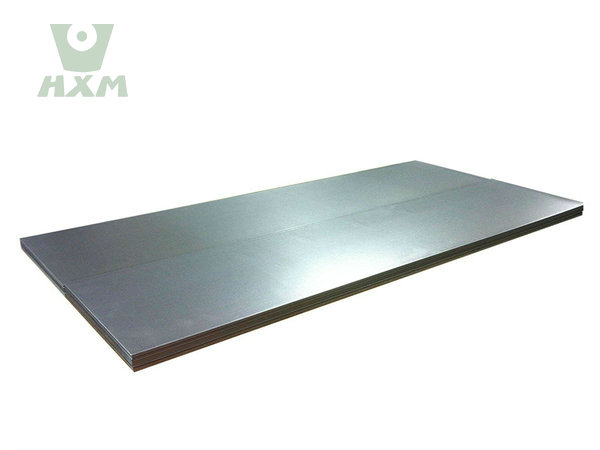
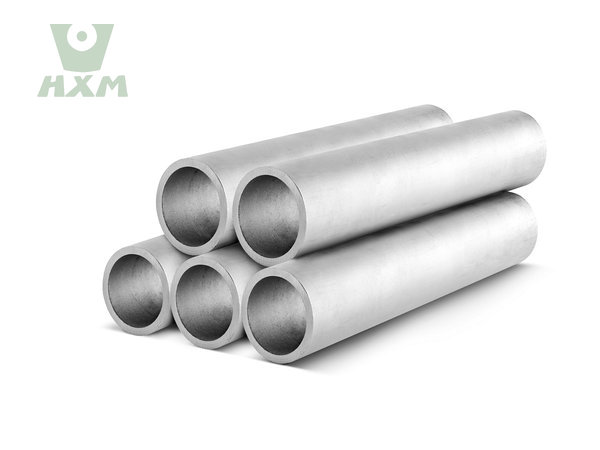
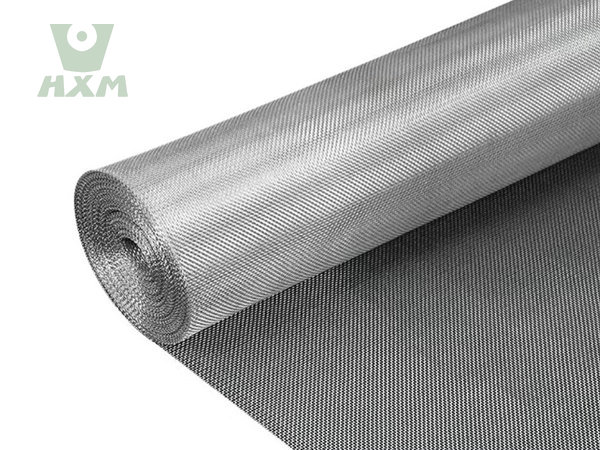
Titanium Alloy Specification
Chemical Composition of Titanium Alloy
This alloy is characterized by its high strength-to-weight ratio, excellent corrosion resistance, and good biocompatibility. It is widely used in aerospace, medical implants, and chemical processing due to its combination of mechanical properties and corrosion resistance. Huaxiao Metal Manufacturer has the good service and delievery for customerized solutions.
The titanium alloy used in aerospace typically contains 90% titanium (Ti) as the base metal, with the remaining 10% consisting of alloying elements such as aluminum (Al) and vanadium (V). The exact composition of Ti-6Al-4V is as follows:
| Element | Composition (wt.%) |
|---|---|
| Titanium (Ti) | Balance (~90%) |
| Aluminum (Al) | 5.5 – 6.75 |
| Vanadium (V) | 3.5 – 4.5 |
| Iron (Fe) | ≤ 0.25 |
| Oxygen (O) | ≤ 0.20 |
| Carbon (C) | ≤ 0.08 |
| Nitrogen (N) | ≤ 0.05 |
| Hydrogen (H) | ≤ 0.015 |
Physical Properties of Titanium Alloy
The physical properties of Ti-6Al-4V make it ideal for aerospace applications:
| Property | Value |
|---|---|
| Density | 4.43 g/cm³ |
| Melting Point | 1604 – 1660 °C |
| Thermal Conductivity | 6.7 W/m·K |
| Electrical Resistivity | 1.7 µΩ·m |
| Coefficient of Thermal Expansion | 8.6 x 10⁻⁶ /°C |
Low Density: The alloy is approximately 40% lighter than steel, making it ideal for reducing the weight of aircraft components.
High Melting Point: Suitable for high-temperature environments, such as jet engines and exhaust systems.
Huaxiao Metal Manufacturer also provides other shapes of Titanium Alloy products, such as plate&sheet, bar, coil,wire&mesh, tube&pipe, strip. The price is affordable and suitable.
Mechanical Properties of Titanium Alloy
The mechanical properties of Ti-6Al-4V are critical for its performance in aerospace applications:
| Property | Value |
|---|---|
| Tensile Strength | 950 MPa |
| Yield Strength | 880 MPa |
| Elongation at Break | 14% |
| Modulus of Elasticity | 113 GPa |
| Hardness (Rockwell C) | 36 |
| Fatigue Strength | 500 MPa (at 10⁷ cycles) |
High Strength-to-Weight Ratio: Ti-6Al-4V provides exceptional strength while being lightweight, which is crucial for aerospace structures.
Fatigue Resistance: The alloy can withstand cyclic loading, making it suitable for components like landing gear and turbine blades.
Fracture Toughness: Excellent resistance to crack propagation, ensuring safety in critical applications.
Benefits of Using Titanium Alloy
Ti-6Al-4V offers several advantages that make it indispensable in aerospace:
Lightweight: Reduces the overall weight of aircraft, leading to improved fuel efficiency and performance.
Corrosion Resistance: Resists corrosion from moisture, saltwater, and chemicals, ensuring longevity in harsh environments.
High-Temperature Performance: Maintains strength and stability at temperatures up to 400°C.
Biocompatibility: Although primarily used in aerospace, its biocompatibility also makes it suitable for medical implants.
Durability: Resists wear and tear, reducing maintenance costs over the lifecycle of aircraft.
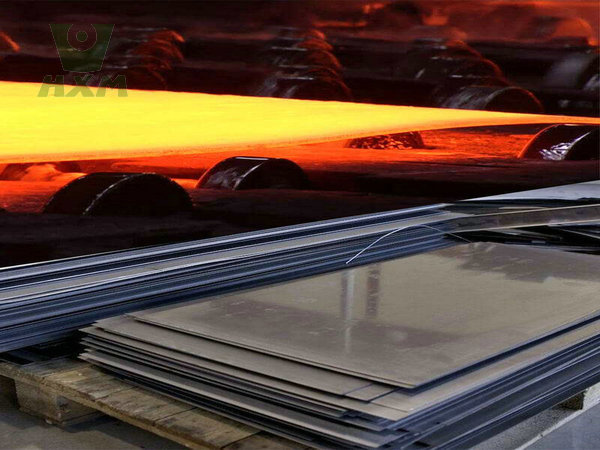
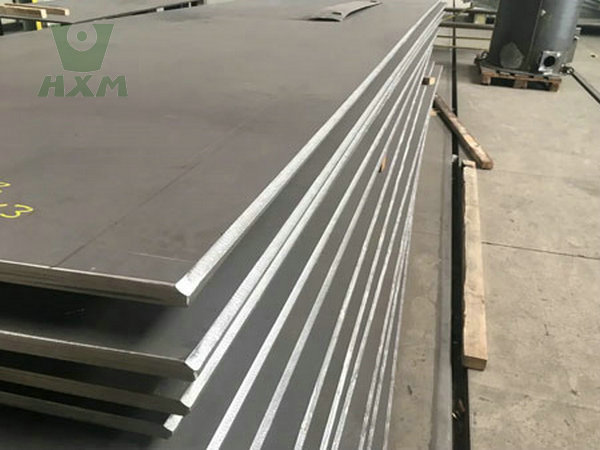
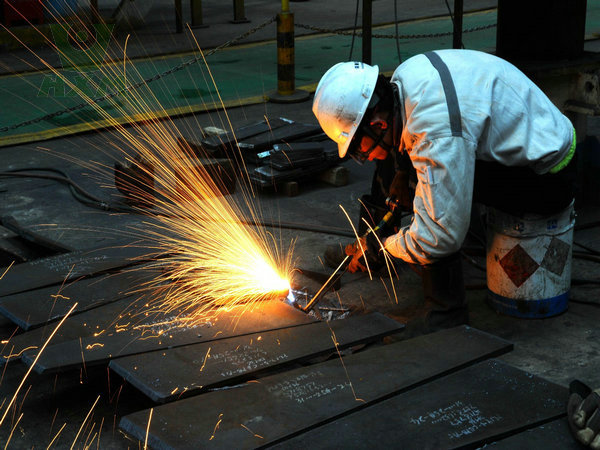
Huaxiao Metal Supplier provides all kinds of titanium alloy products in the world. Welcome to inquiry and ask for the lastest price. Looking forward to your email, which I am convienced that you will be satisfied to our products.
Huaxiao Metal Supplier provides professional services and reasonable prices, offering customers the best quality products. The Titanium Alloy Factory is a specialized manufacturing facility dedicated to the production of high-quality titanium alloy. This factory combines advanced technology, rigorous quality control, and experienced personnel to ensure the production of titaium alloy the highest standards.The factory is equipped with state-of-the-art production equipment and machinery, capable of producing titanium alloy with precise dimensions and consistent quality.Welcome to reqiure, and ask to the lastest price list.
Titanium Alloy Manufacturing and Cost
Manufacturing Processes: Ti-6Al-4V can be processed using forging, casting, machining, and additive manufacturing (3D printing). Advanced techniques like powder metallurgy are also used for complex components.
Cost: The cost of Ti-6Al-4V is relatively high due to:
Expensive raw materials (titanium, vanadium).
Complex extraction and processing methods.
High energy consumption during manufacturing.
Despite the high cost, the benefits of weight reduction, fuel efficiency, and durability justify its use in aerospace.
Pricing Trends
- Over the years, the price of titanium alloy has been subject to fluctuations due to changes in raw material costs, manufacturing efficiencies, and market demands.
- Innovations in manufacturing technology and recycling processes may help to stabilize or reduce the cost of titanium alloy in the future.
- The increasing adoption of titanium alloy in emerging industries such as renewable energy and electric vehicles could also influence pricing trends.
Comparison with Other Aerospace Alloys
| Property | Ti-6Al-4V | Aluminum 7075 | Inconel 718 |
|---|---|---|---|
| Density (g/cm³) | 4.43 | 2.81 | 8.19 |
| Tensile Strength (MPa) | 950 | 572 | 1350 |
| Yield Strength (MPa) | 880 | 503 | 1170 |
| Corrosion Resistance | Excellent | Moderate | Excellent |
| Temperature Resistance | Up to 400°C | Up to 120°C | Up to 700°C |
| Cost | High | Low | Very High |
Titanium An Alloy Pricing Insights
Titanium alloy, known for its high specific strength, excellent corrosion resistance, and good biocompatibility, is widely used in various industries such as aerospace, biomedical, and precision instrumentation. However, understanding the pricing dynamics of titanium alloy requires a comprehensive analysis of multiple factors.
An Alloy The Price
Raw Material Costs:
- The cost of titanium ore and the refining process significantly impact the price of titanium alloy. Variations in the availability and quality of titanium ore can lead to fluctuations in raw material costs.
- Additionally, the energy consumption and environmental regulations associated with refining titanium also contribute to the overall cost.
Manufacturing Process:
- The complexity and efficiency of the manufacturing process play a crucial role in determining the price. Techniques such as powder injection molding, laser melting, and electro-discharge machining each have their own cost structures and efficiency levels.
- The precision required for titanium alloy components often necessitates advanced machinery and skilled labor, which adds to the manufacturing costs.
Market Demand and Supply:
- The global demand for titanium alloy, particularly in high-tech industries, can influence pricing. Increased demand may lead to higher prices, while an oversupply could result in lower prices.
- Geopolitical factors, trade policies, and economic conditions can also affect the supply chain and pricing of titanium alloy.
Specification and Grade:
- Different grades and specifications of titanium alloy have varying properties and applications. For instance, aerospace-grade titanium alloy is often more expensive due to its stringent quality requirements and specialized applications.
- The chemical composition, mechanical properties, and heat treatment of titanium alloy can also affect its price.
Geographical Location:
- The cost of production and transportation can vary depending on the geographical location. Regions with abundant titanium ore resources and developed manufacturing infrastructure may have lower production costs.
- Additionally, import and export tariffs, customs duties, and transportation costs can further influence the final price of titanium alloy in different markets.
Applications of Titanium Alloy in Aerospace
Aerospace of Titanium Alloy
Ti-6Al-4V is used in a wide range of aerospace components, including:
Airframes: Structural components such as fuselage frames, wing spars, and landing gear.
Jet Engines: Compressor blades, turbine disks, and engine casings.
Spacecraft: Heat shields, rocket motor casings, and satellite components.
Fasteners: Bolts, nuts, and rivets due to their high strength and corrosion resistance.
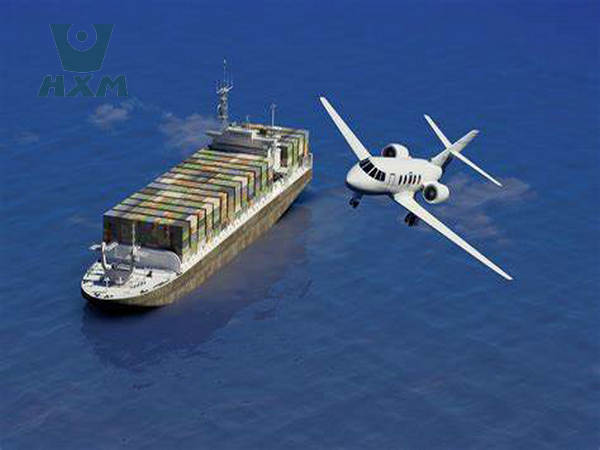
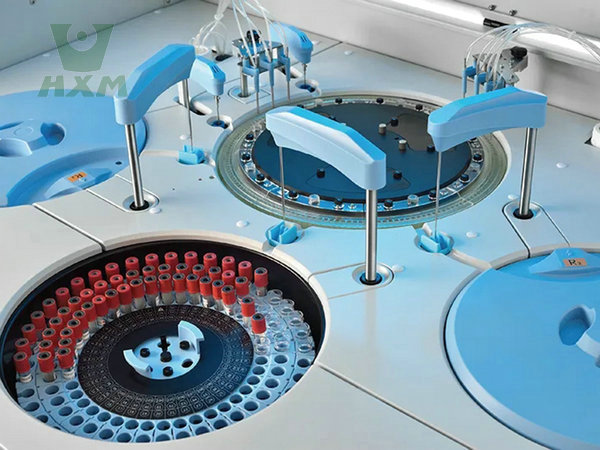
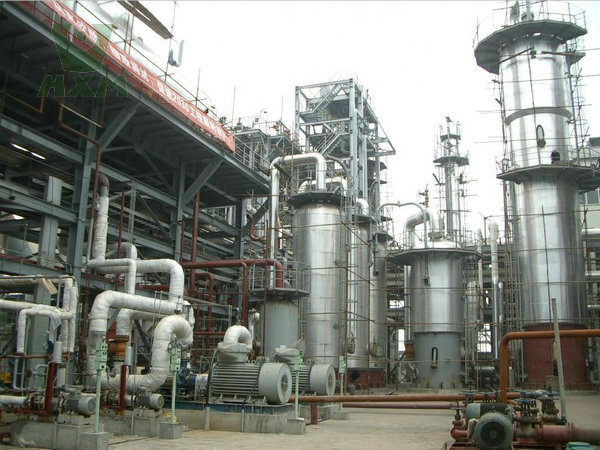

In Conclusion
Titanium alloys used in aerospace applications offer a unique combination of properties that make them indispensable for modern aircraft and spacecraft. Their high titanium content, along with carefully selected alloying elements, results in materials with exceptional strength, corrosion resistance, and temperature tolerance. While production costs are relatively high, the benefits of titanium alloys in terms of weight reduction, durability, and versatility justify their use in aerospace and other critical applications. Our products are guaranteed in quality, and our professional team can provide technical support and consulting services. If you need more information or have any questions, please free to contact our customer service team.
Ti-6Al-4V is a cornerstone material in the aerospace industry due to its unique combination of lightweight, high strength, corrosion resistance, and high-temperature performance. Its applications range from airframes to jet engines, making it indispensable for modern aircraft and spacecraft. While the cost of the alloy is high, the long-term benefits in terms of performance, fuel efficiency, and durability make it a worthwhile investment for aerospace manufacturers. Huaxiao Metal Supplier is professional and experienced in alloy producing factory, our company provides the personalized services and welcome to inquiry about the lastest price.
This detailed analysis highlights the importance of Ti-6Al-4V in aerospace, showcasing its chemical composition, physical and mechanical properties, advantages, and applications. Understanding these characteristics is essential for optimizing its use in high-performance aerospace systems. The pricing of titanium alloy is a complex interplay of multiple factors, including raw material costs, manufacturing processes, market demands, specifications, and geographical location. Understanding these factors is crucial for buyers and sellers to make informed decisions in the titanium alloy market. As the demand for titanium alloy continues to grow in high-tech industries, it is essential to stay updated on the latest pricing trends and market dynamics to capitalize on opportunities and mitigate risks.

